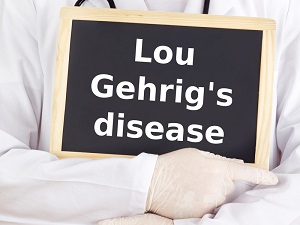 Thanks to celebrities, social media and news media lately, ALS has really gained some awareness. ALS stands for Amyotrophic Lateral Sclerosis. It is a neurodegenerative disease that is rapidly progressive, affecting the nerve cells of the brain and the spinal cord. What happens in ALS is that the nerve cells die and leave voluntary muscles paralyzed. ALS is often referred to as Lou Gehrig’s disease, named after the famous baseball player from the New York Yankees who was the first to be diagnosed with this disorder back in 1939. ALS disease is a progressive and fatal disorder, and the most common cause of death among ALS patients is respiratory failure and pneumonia which occurs in two to three years after diagnosis.
Thanks to celebrities, social media and news media lately, ALS has really gained some awareness. ALS stands for Amyotrophic Lateral Sclerosis. It is a neurodegenerative disease that is rapidly progressive, affecting the nerve cells of the brain and the spinal cord. What happens in ALS is that the nerve cells die and leave voluntary muscles paralyzed. ALS is often referred to as Lou Gehrig’s disease, named after the famous baseball player from the New York Yankees who was the first to be diagnosed with this disorder back in 1939. ALS disease is a progressive and fatal disorder, and the most common cause of death among ALS patients is respiratory failure and pneumonia which occurs in two to three years after diagnosis.
Symptoms:
The common and early symptoms of this disease include weakness in the hands or feet, muscle twitching and trouble in swallowing or talking. Other signs include the inability to use the upper and lower extremities and “think speech” or the difficulty of projecting your voice. There will also be fatigability, constant dropping of things, tripping and slurred speech. As the disease progresses, there will be a difficulty in breathing and swallowing, shortness of breath, dementia and paralysis.
Cure:
At present time there is no proper cure for ALS and unfortunately no treatment. Treatment of ALS is symptomatic – the symptoms are the ones being addressed, not the disease itself. Supportive care is what is encouraged with the goal of improving the quality of life. Physical therapy, speech therapy, a diet that provides nutrients needed and eliminates the hazards of choking are the current treatment methods of ALS. A recent medication for ALS is Riluzole which helps in reducing the damage on motor neurons through decreasing the release of glutamate. This will prolong the survival of patients of ALS who have been using it.
ALS can be either periodic or genetic, and more genes are being recognized as likely causes of ALS. The fact is that a person can have the ALS mutation genes, but never get ALS, while a person without any particular gene can be prompted to this disease. Men have a 25% more chance of being diagnosed at an earlier age than women. However, once men and women reach into their 50s, diagnosis is about equal.
Thanks to recent Ice Bucket Challenges ALS has come out of the shadows and is getting the awareness it needs. Do what you can to help support research for a cure. Let’s all help in finding a cure before someone we know and love gets diagnosed with this crippling disease.
For more articles go to http://clubonefitness.lifestyleezine.com

